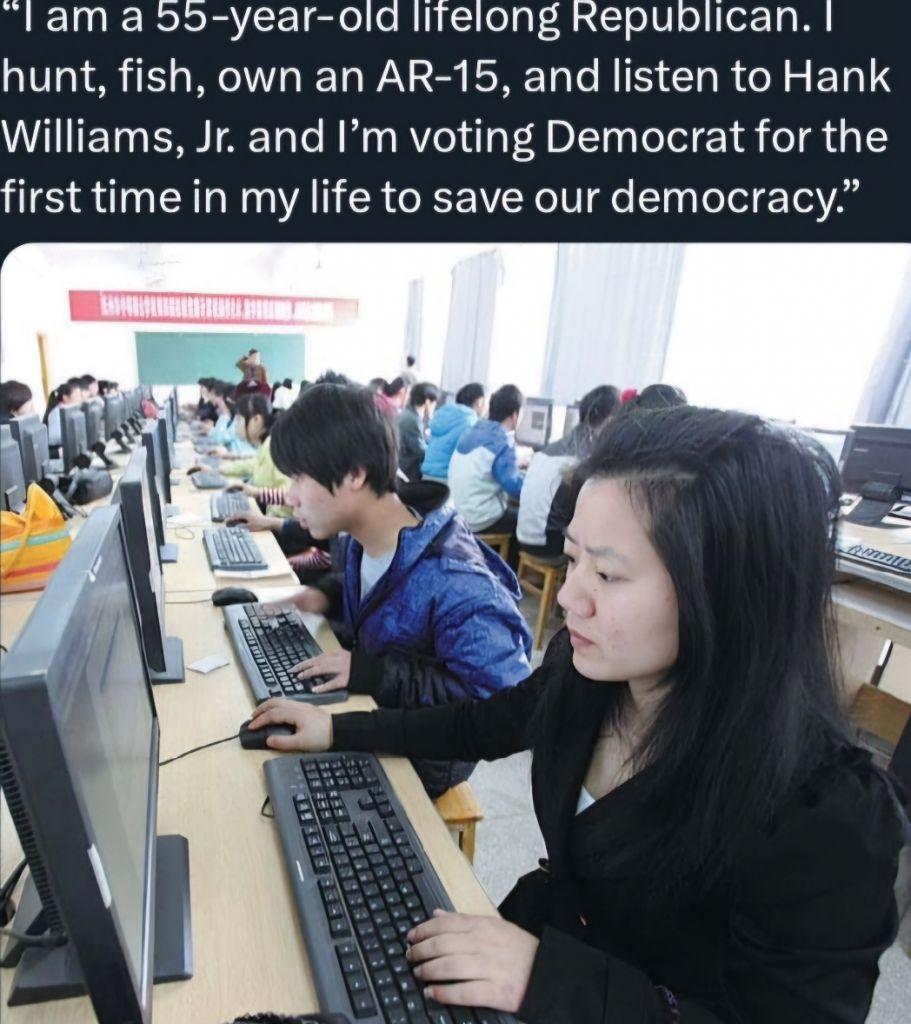Wall Street Journal TECHNOLOGY
Meta Uncovers Largest-Ever Chinese Influence Network
Company removed almost 8,000 accounts, says content didn’t spread far
Meta Platforms said it has taken down the largest known online covert influence operation in the world, a cross-platform campaign that was aimed at advancing China’s interests and discrediting its adversaries including the U.S.
In a report released Tuesday, Meta said the effort was largely unsuccessful despite comprising thousands of accounts across more than 50 apps, including about 7,700 of its own Facebook and Instagram, plus YouTube, TikTok, Reddit, Pinterest and X, formerly Twitter. Meta said the operation, known in the security community as “Spamouflage,” dated back to 2019 and was linked to individuals associated with Chinese law enforcement.
Meta said the China network was pushing positive commentary about the country as well as criticism of the U.S. and western foreign policies. It was run by operators dispersed across China, and many of the accounts were detected and disabled by the company’s automated systems. Meta said this likely led to posting on smaller platforms and trying to amplify the content to larger services.
“We have not found evidence of this network getting any substantial engagement among authentic communities on our services,” Meta said.
The Chinese government has broadly denied targeting the U.S. with online influence campaigns or disinformation. Likewise, Russia has previously denied trying to influence U.S. elections.
In a statement, the Chinese embassy in Washington said China opposes the production and spread of false information. It said U.S. social media was “awash with disinformation about China,” but didn’t address Meta’s allegations or actions.
The Russian embassy in Washington didn’t respond to a request for comment.
The takedown was the seventh that Meta said it has removed from China over the past six years. It was also one of several around the globe that Meta said it recently completed, including the disruption of Doppelganger, the largest and most aggressive Russian operation the company has seen. That campaign, which was focused on weakening support for Ukraine by its allies, entailed operators posting links to websites resembling real news outlets and containing pro-Russia narratives. Because those exist off-platform, Meta said they can be difficult to counter.
“Enforcements on each individual platform can only go so far in disrupting these internet-wide campaigns while their websites remain live,” Meta said.
Meta and other social platforms began sharpening their focus on coordinated campaigns intended to sway public opinion after the identification of Russian government interference in the 2016 U.S. presidential election. A 2019 report from a U.S. Senate committee criticized U.S. tech giants for helping spread disinformation during the 2016 campaign and called for better coordination of efforts to prevent similar activity for future elections.
Covert social-media campaigns are essentially a whack-a-mole problem for platform operators. People seeking to achieve illicit goals through such campaigns are constantly refining their methods to avoid detection, according to security experts.
Some common indicators of malicious activity include posts with spelling and grammar errors and links to unrelated topics. The China network’s posts were so spammy that the operation appeared to be prioritizing volume over audience building, said Ben Nimmo, global threat intelligence lead at Meta.
“It’s throwing spaghetti at the wall to see what sticks,” he said, adding that this raises a question of whether the operators were really trying to influence social-media users or simply earn a paycheck. “Who is the ultimate target—the audience or the guys paying the bills?”
Meta’s latest takedowns come as U.S. relations with China are tense and as the U.S. opposes Russia’s invasion of Ukraine. In recent months, the White House has confirmed reports of China ramping up its military presence in Cuba, while President Biden called Chinese leader Xi Jinping a dictator. Washington has been preparing measures to curb exports of advanced semiconductors to China and to cut Chinese companies off from U.S. cloud computing platforms.
Write to Sarah E. Needleman at [email protected]
Meta Uncovers Largest-Ever Chinese Influence Network
Company removed almost 8,000 accounts, says content didn’t spread far
Meta Platforms said it has taken down the largest known online covert influence operation in the world, a cross-platform campaign that was aimed at advancing China’s interests and discrediting its adversaries including the U.S.
In a report released Tuesday, Meta said the effort was largely unsuccessful despite comprising thousands of accounts across more than 50 apps, including about 7,700 of its own Facebook and Instagram, plus YouTube, TikTok, Reddit, Pinterest and X, formerly Twitter. Meta said the operation, known in the security community as “Spamouflage,” dated back to 2019 and was linked to individuals associated with Chinese law enforcement.
Meta said the China network was pushing positive commentary about the country as well as criticism of the U.S. and western foreign policies. It was run by operators dispersed across China, and many of the accounts were detected and disabled by the company’s automated systems. Meta said this likely led to posting on smaller platforms and trying to amplify the content to larger services.
“We have not found evidence of this network getting any substantial engagement among authentic communities on our services,” Meta said.
The Chinese government has broadly denied targeting the U.S. with online influence campaigns or disinformation. Likewise, Russia has previously denied trying to influence U.S. elections.
In a statement, the Chinese embassy in Washington said China opposes the production and spread of false information. It said U.S. social media was “awash with disinformation about China,” but didn’t address Meta’s allegations or actions.
The Russian embassy in Washington didn’t respond to a request for comment.
The takedown was the seventh that Meta said it has removed from China over the past six years. It was also one of several around the globe that Meta said it recently completed, including the disruption of Doppelganger, the largest and most aggressive Russian operation the company has seen. That campaign, which was focused on weakening support for Ukraine by its allies, entailed operators posting links to websites resembling real news outlets and containing pro-Russia narratives. Because those exist off-platform, Meta said they can be difficult to counter.
“Enforcements on each individual platform can only go so far in disrupting these internet-wide campaigns while their websites remain live,” Meta said.
Meta and other social platforms began sharpening their focus on coordinated campaigns intended to sway public opinion after the identification of Russian government interference in the 2016 U.S. presidential election. A 2019 report from a U.S. Senate committee criticized U.S. tech giants for helping spread disinformation during the 2016 campaign and called for better coordination of efforts to prevent similar activity for future elections.
Covert social-media campaigns are essentially a whack-a-mole problem for platform operators. People seeking to achieve illicit goals through such campaigns are constantly refining their methods to avoid detection, according to security experts.
Some common indicators of malicious activity include posts with spelling and grammar errors and links to unrelated topics. The China network’s posts were so spammy that the operation appeared to be prioritizing volume over audience building, said Ben Nimmo, global threat intelligence lead at Meta.
“It’s throwing spaghetti at the wall to see what sticks,” he said, adding that this raises a question of whether the operators were really trying to influence social-media users or simply earn a paycheck. “Who is the ultimate target—the audience or the guys paying the bills?”
Meta’s latest takedowns come as U.S. relations with China are tense and as the U.S. opposes Russia’s invasion of Ukraine. In recent months, the White House has confirmed reports of China ramping up its military presence in Cuba, while President Biden called Chinese leader Xi Jinping a dictator. Washington has been preparing measures to curb exports of advanced semiconductors to China and to cut Chinese companies off from U.S. cloud computing platforms.
Write to Sarah E. Needleman at [email protected]
Last edited:





